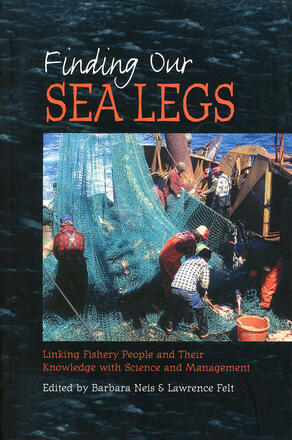
Finding Our Sea Legs
Linking Fishery People and Their Knowledge with Science and Management
Description
The global fisheries crisis has prompted widespread debate about the origins of overfishing in managed fisheries. Criticisms of existing systems of science and management have led to experimental approaches involving access to fishery workers and their knowledge. Finding Our Sea Legs is an edited collection of theoretical discussions and case studies of such experiments, with a particular focus on the North Atlantic.
Significant institutional changes are required to involve fishery workers and their knowledge in fisheries science and management. Fundamental differences between stock assessment science and fishers' knowledge require new methods for combining and interpreting information. Management structures, industrial and resource management strategies and technological change could affect the nature and quality of information derived from fishery workers. Such impacts need to be assessed.
This extensive interdisciplinary overview will be useful to students, fishers, community leaders, social and natural scientists, managers and environmentalists with an interest in fisheries science and management.
Reviews
"This is a book that everyone with an interest in maritime or natural resources in general should read. It introduces new possibilities in resource management and sustainable development. "
- Hrefna Karlsdottir, International Journal of Maritime History
"The book should find readers from a wide range of those who have a concern for natural resources. Wider still, there is a growing number of people in the social sciences and the natural sciences who are trying to understand what has been happening to knowledge systems over the last two or three decades. They too will discover here much that is instructive. "
- Brian Elliot, University of British Columbia